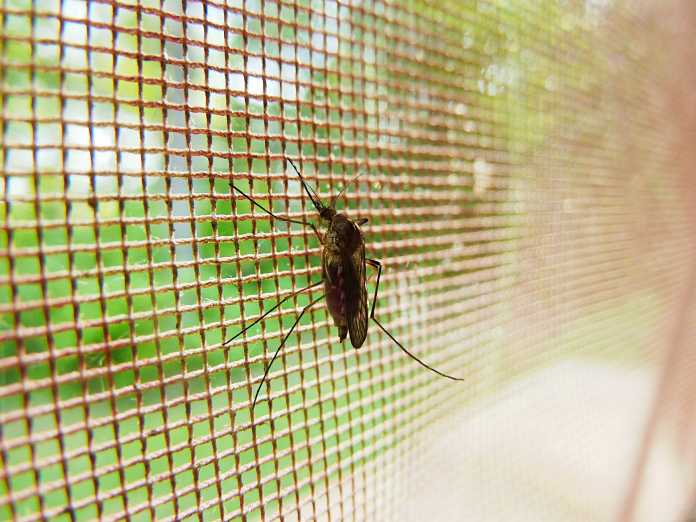A recent Washington Post (The Post) story, “Where Malaria is Spreading,” claims that climate change could put over 5 billion people at risk of malaria by 2040, primarily due to expanding seasons where mosquitoes can spread the disease, migrating mosquitoes, and increased populations and stagnant water caused by unusual flooding. This is false. Malaria already has a wide distribution, with many areas only avoiding it being endemic due to past suppression efforts. Population growth in areas where the disease remains common may lead to more instances of the disease unless available preventative and prophylactic measures are taken. However, there is no evidence malaria will spread geographically, due to either modestly rising temperatures or increased moisture.
The Post’s article, written by authors Rachel Chason, Kevin Crowe, John Muyskens, and Jahi Chikwendiu, mainly focuses on malaria’s increase in Mozambique. It has seen a 10 percent increase in malaria cases over the past six years. The Post than ties Mozambique’s malaria increase to claims made in a Lancet study, “Projecting the risk of mosquito-borne diseases in a warmer and more populated world: a multi-model, multi-scenario intercomparison modelling study,” which used climate and mosquito-borne disease models to estimate how the transmission seasons and population densities might change with global warming.
The study’s authors say their modelling shows malaria suitability may increase by 1-6 months in tropical highlands in Africa, the Eastern Mediterranean, and the Americas. Dengue sees similar results, with suitability increasing in lowlands in the Western Pacific and the Eastern Mediterranean by 4 months.
Shamefully, like many studies making misleading and alarming claims attributed to climate change, the Lancet study uses the climate modelling scenario RCP8.5 (RCP meaning representative concentration pathway), which climate scientists admit runs way too hot. Any research that built upon that scenario is going to produce extremely skewed results, because RCP8.5 involves an amount of released carbon dioxide that is actually impossible, even if all the fossil fuels on the planet were burned.
While the Lancet study is suspect, it may still seem logical to assume that the modest warming of the past hundred or so years has and will continue to expand the range of mosquitoes, as well as the number of days during the year in which they are active and biting. However, a large body of research refutes this assumption.
A chapter in Climate Change Reconsidered II: Fossil Fuels, discusses the results of more than a dozen peer-reviewed studies which demonstrate that temperature alone is not enough to guarantee migration or longer survival of mosquitoes or mosquito-borne illnesses like malaria. There are far more factors that come into play, including human interventions, that outweigh temperature alone.
The report explains:
Gething et al. (2010), writing specifically about malaria, may have put it best when they said there has been “a decoupling of the geographical climate malaria relationship over the twentieth century, indicating that non-climatic factors have profoundly confounded this relationship over time.
More examples from Climate Change Reconsidered are discussed in a Climate Realism post, “Environment Journal Wrong About Climate Change Increasing Malaria,” including papers by a vector-borne disease expert, Paul Reiter, from the Centers for Disease Control and Prevention (CDC) which explain that while reemergence of malaria and similar diseases in some regions is concerning, “it is facile to attribute this resurgence to climate change.”
The Post admits that endemic malaria “was eliminated in North America and Europe in the mid-1900s, with a better understanding of how to control it.” This is true, and what’s more, a 2010 Nature study (Gething et al.) found that malaria was probably endemic on 58 percent of the world’s surface in 1900, before the period of modern warming, and only 30 percent by 2007, after decades of modest warming.
Almost every credible study, not based on biased computer models, rejects the myopic causal view of the relationship between climate and malaria.
Extreme weather, The Post claims, like flooding are causing cases to rise in places like Mozambique, with “experts” telling them that the frightening trend is likely to continue. While The Post suggests the trends are mostly due to climate change, they also admit that other factors like “increased resistance of mosquitoes to insecticides and of the parasite to drugs” and improved disease reporting and tracking have played a role in the reported increase.
Flooding is unlikely to cause an increase in mosquito-borne illness, because even the U.N. Intergovernmental Panel on Climate Change (IPCC) reports only low confidence that there is even any sign climate change has impacted flooding. Mozambique, a South-East African nation, has suffered some flooding in recent years, but as discussed in Climate Realism, here, any link to long-term climate change lacks evidence. Flooding is a regular occurrence in many parts of southern Africa, and population increases means that during the rainy season more people are living near mosquito-friendly standing water.
Before running this alarming story, The Washington Post should have examined the wider body of research available concerning mosquito-borne illnesses. There is no evidence that warming is currently causing, or will lead to, an increase in malaria cases or deaths. Facts, not fearmongering, should guide The Post’s and other legitimate news outlets’ coverage of climate and disease issues.

















